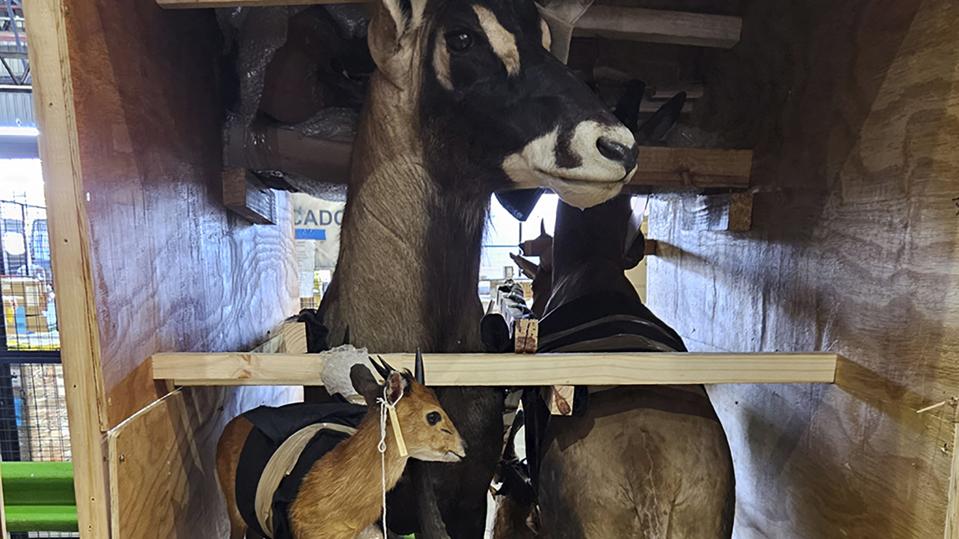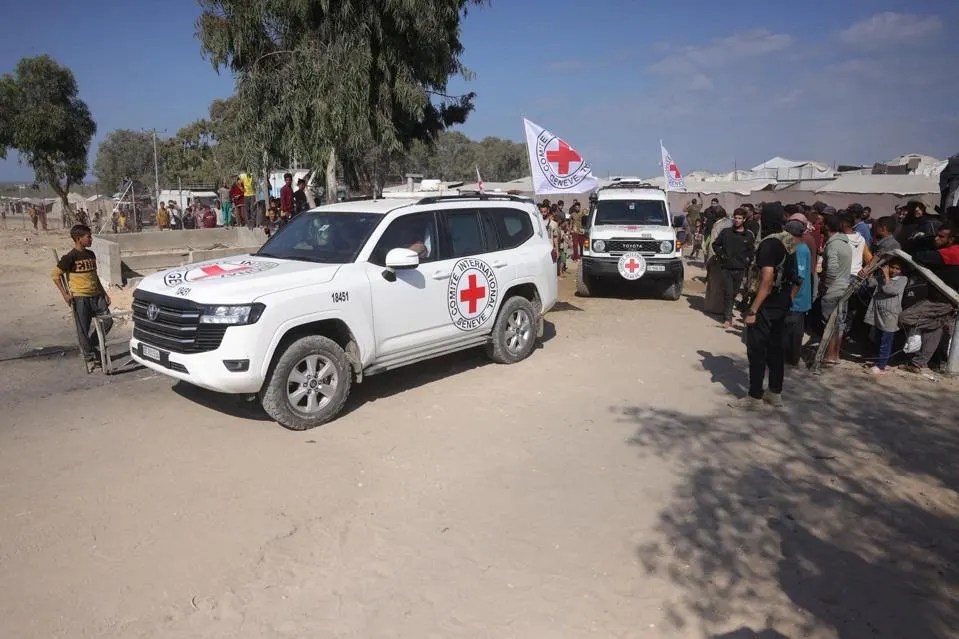Interpol and the World Customs Organization led a worldwide effort to make 500 arrests and seize more than 2,000 animals and plants, the two groups announced Tuesday, part of an annual crackdown on global endangered wildlife trafficking that highlights the persistence of the illegal trade.

This photo provided by Interpol shows stuffed animals seized by custom officers in Argentina on Oct.6, 2023.
Key Takeaways
- The animals were all protected under international law due to their endangered status and included 1,370 live birds, 53 live primates, four live big cats and other species, according to Interpol, which called the crackdown Operation Thunder.
- Police and customs officials across multiple countries seized more than 30 tons of internationally protected plants, including protected cactus species.
- The crackdown also seized 2,624 cubic meters of timber—the equivalent of 440 standard shipping containers, Interpol said.
- Among the more than 2,000 seizures, which all occurred between Oct. 2 and 27, officials also recovered more than 300 kilograms of ivory, thousands of turtle eggs, 30 tons of plants and dozens of big cat body parts and rhino horns.
- Interpol and the World Customs Organization coordinated with local police customs officers to carry out the operation, targeting alleged traffickers as they crossed borders—with local authorities ultimately searching hundreds of vehicles, suitcases and cargo transporters.
- Seizures took across the globe, in places like Panama, the Czech Republic and Tanzania.
Key Background
It’s the seventh annual Operation Thunder. While this year’s 2,114 seizures represent a slight downtick from last year’s 2,200, the number of seizures has steadily grown since the 1,300 in 2017, as the number of countries involved in the effort has more than doubled since then. Laws on wildlife trafficking vary from country to country, according to the United Nations, with punishments ranging from civil to criminal.
In the United States, for instance, breaking laws protecting endangered species can result in a fine of up to $50,000 or imprisonment of up to one year, though some trafficking laws can lead to prison sentences of up to five years. Interpol officials say the annual crackdown highlights how the wildlife trade is intertwined with other forms of international organized crime.
In analysing data from this year’s seizures, officials alleged 60% of wildlife trafficking cases were linked to transnational organized crime groups and operated along routes used to smuggle other illegal products. Many of the animals, animal parts and timber were set to be sold illegally on online sales platforms. Interpol says the operation also highlights how many protected reptiles and marine life are still being exploited for luxury brand fashion—the crackdown recovered more than 20,034 kilograms worth of marine species and nearly 8,000 pieces of reptiles.
Crucial Quote
“Important and endangered animals, birds and plants are being put at risk of extinction by wildlife and timber traffickers,” said Interpol Secretary General Jürgen Stock.
Big Number
133. That’s how many countries participated in this year’s Operation Thunder, the highest participation rate since the program began in 2017.
This article was first published on forbes.com and all figures are in USD


